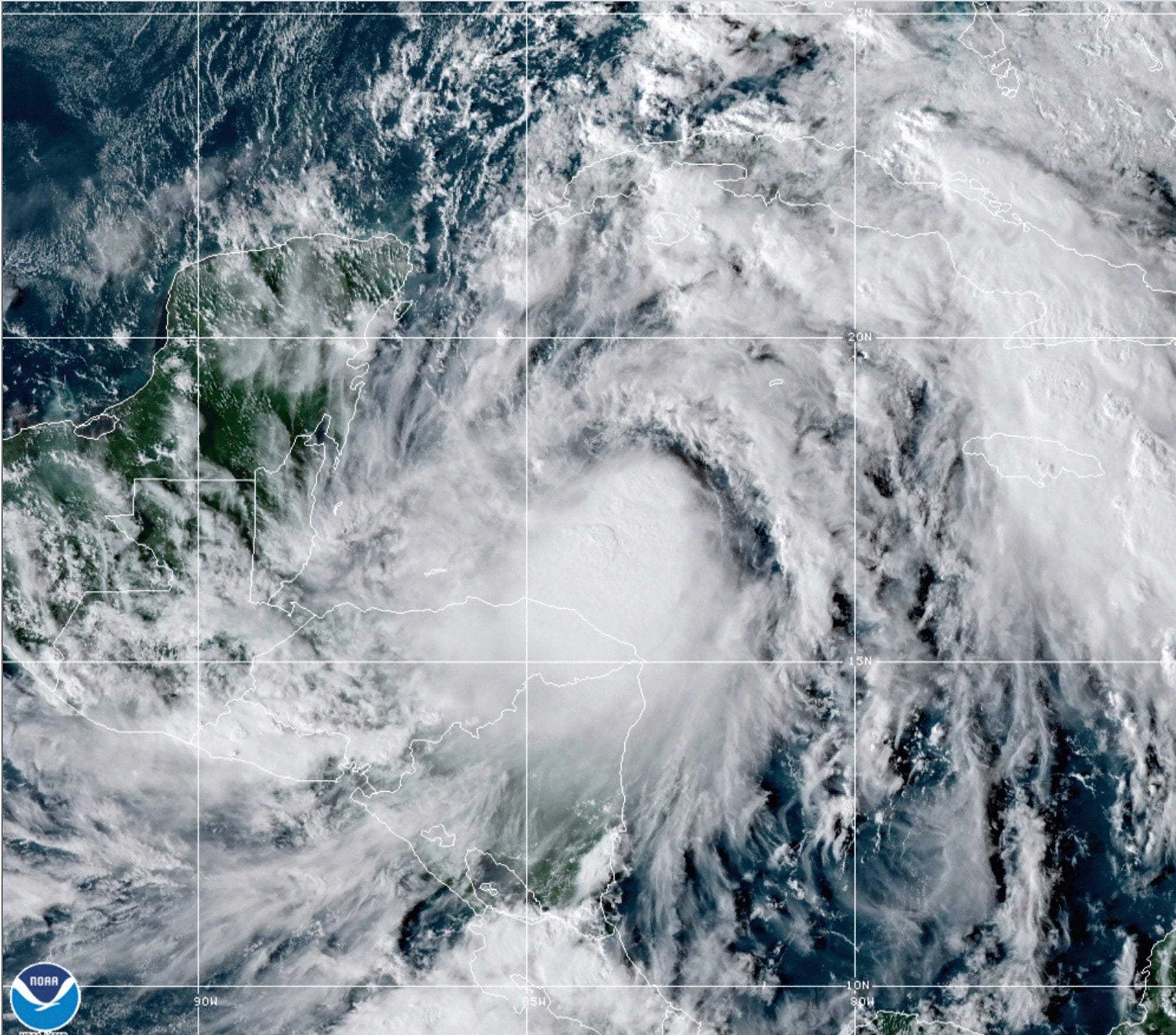Tropical Storm Zeta forecast to become hurricane as Gulf Coast braces for landfall
A strengthening Tropical Storm Zeta is expected to become a hurricane Monday as it heads toward the eastern end of Mexico’s resort-dotted Yucatan Peninsula and then likely move on for a possible landfall on the central U.S. Gulf Coast at midweek

Your support helps us to tell the story
From reproductive rights to climate change to Big Tech, The Independent is on the ground when the story is developing. Whether it's investigating the financials of Elon Musk's pro-Trump PAC or producing our latest documentary, 'The A Word', which shines a light on the American women fighting for reproductive rights, we know how important it is to parse out the facts from the messaging.
At such a critical moment in US history, we need reporters on the ground. Your donation allows us to keep sending journalists to speak to both sides of the story.
The Independent is trusted by Americans across the entire political spectrum. And unlike many other quality news outlets, we choose not to lock Americans out of our reporting and analysis with paywalls. We believe quality journalism should be available to everyone, paid for by those who can afford it.
Your support makes all the difference.A strengthening Tropical Storm Zeta is expected to become a hurricane Monday as it heads toward the eastern end of Mexico's resort-dotted Yucatan Peninsula and then likely move on for a possible landfall on the central U.S. Gulf Coast at midweek.
Zeta, which on Sunday became the earliest ever 27th named storm of the Atlantic season, was centered about 260 miles (420 kilometers) southeast of Cozumel island late Sunday, the U.S. National Hurricane Center said. It had maximum sustained winds of 60 mph (95 kph).
Though nearly stationary, the storm was expected to begin advancing on a path that would take it over the Yucatan Peninsula late Monday. It would then head into the Gulf of Mexico and approach the U.S. Gulf Coast by Wednesday, though it could weaken by then, the hurricane center said.
Officials in Quintana Roo state, the location of Cancun and other resorts, said they were watching the storm. They reported nearly 60,000 tourists in the state as of midweek. The state government said 71 shelters were being readied for tourists or residents who might need them.
The government is still handing out aid, including sheet roofing, to Yucatan residents hit by Hurricane Delta and Tropical Storm Gamma earlier this month.
A hurricane warning was posted for the Yucatan Peninsula from Tulum to Rio Lagartos, including Cancun and Cozumel.
Zeta was dawdling because it was trapped between two strong high pressure systems to the east and west, and it could not move north or south because nothing was moving there either, said Brian McNoldy, a hurricane researcher at the University of Miami
Colorado State University hurricane researcher Phil Klotzbach said that when a storm gets stuck, it can unload dangerous downpours over one place, causing flooding. That happened in 2017 over Houston with Harvey, when more than 60 inches (150 centimeters) of rain fell and in 2019 over the Bahamas with Category 5 Hurricane Dorian, which was the worst-case scenario of a stationary storm, he said.
The hurricane center said Zeta could bring 4 to 8 inches (10 to 20 centimeters) of rain to Mexico, Jamaica and parts of Cuba, before drenching the central U.S. Gulf Coast.
The storm could make landfall anywhere from Louisiana to the Florida Panhandle, forecasters said.
Louisiana Gov. John Bel Edwards urged his state's citizens to monitor the storm, and the state activated its Crisis Action Team.
Zeta broke the record for the previous earliest 27th Atlantic named storm that formed Nov. 29, 2005, Klotzbach said.
This year’s season has so many storms that the hurricane center has turned to the Greek alphabet after running out of official names.
Zeta is the furthest into the Greek alphabet the Atlantic season has gone. There was also a Tropical Storm Zeta in 2005, but that year had 28 storms because meteorologists later went back and found they missed one, which then became an “unnamed named storm,” Klotzbach said.
___
AP Science Writer Seth Borenstein in Kensington, Md., contributed to this report.